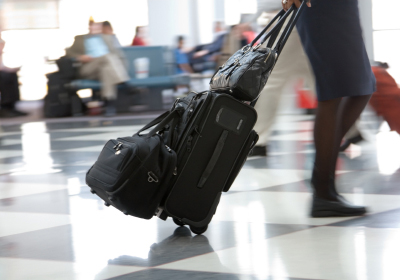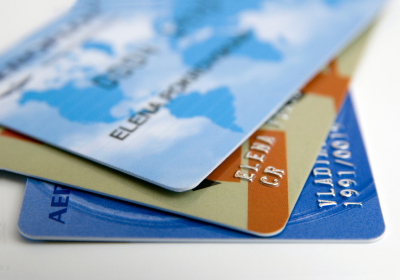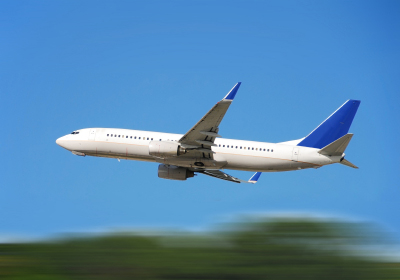
Profit and prosper with the best of Kiplinger's advice on investing, taxes, retirement, personal finance and much more. Delivered daily. Enter your email in the box and click Sign Me Up.
You are now subscribed
Your newsletter sign-up was successful
Want to add more newsletters?

Delivered daily
Kiplinger Today
Profit and prosper with the best of Kiplinger's advice on investing, taxes, retirement, personal finance and much more delivered daily. Smart money moves start here.

Sent five days a week
Kiplinger A Step Ahead
Get practical help to make better financial decisions in your everyday life, from spending to savings on top deals.

Delivered daily
Kiplinger Closing Bell
Get today's biggest financial and investing headlines delivered to your inbox every day the U.S. stock market is open.

Sent twice a week
Kiplinger Adviser Intel
Financial pros across the country share best practices and fresh tactics to preserve and grow your wealth.

Delivered weekly
Kiplinger Tax Tips
Trim your federal and state tax bills with practical tax-planning and tax-cutting strategies.

Sent twice a week
Kiplinger Retirement Tips
Your twice-a-week guide to planning and enjoying a financially secure and richly rewarding retirement

Sent bimonthly.
Kiplinger Adviser Angle
Insights for advisers, wealth managers and other financial professionals.

Sent twice a week
Kiplinger Investing Weekly
Your twice-a-week roundup of promising stocks, funds, companies and industries you should consider, ones you should avoid, and why.

Sent weekly for six weeks
Kiplinger Invest for Retirement
Your step-by-step six-part series on how to invest for retirement, from devising a successful strategy to exactly which investments to choose.
Traveling is difficult enough. Add mileage programs and travel incentives, it will either leave you on the phone for hours or scratching your head. Here are some pointers on how to navigate the skies of travel rewards programs and what to stay away from.
By Mark Solheim

Earning miles is a cinch. using them is tough.
Airlines discovered that they could make more money by selling miles to "partners" than by selling seats. You can earn miles when you buy at retailers and even when you take out a mortgage. But good luck trying to exchange them for tickets because airlines are filling planes with paying customers. And although you may be able to use your miles for hotels or rental cars, don't count on using them to buy merchandise.
AAdvantage, American Airlines' frequent-flier plan, won't let you. Delta's SkyMiles and United's Mileage Plus limit purchases to elite members. Other than award tickets, the best way to use up those miles is to buy an upgrade to first class, says Tim Winship, editor of FrequentFlier.com.

Swapping points is a losing proposition.
Frequent-flier-program rules would confound Einstein-but basically you can't consolidate points among programs without jumping through many, many hoops. One site, Points.com, promises to make it easy to "turn your little points into big rewards." But Bob Jones, founder of travel site BookingWiz.com, calls the site "ridiculous" because of the stinginess of the deals.
The typical frequent-flier mile is now worth about 1.2 cents (down from 2 cents a few years ago), but at Points.com it's worth a fraction of that. For example, among recent offers, you could swap 14,000 Alaska Air miles to get 1,353 American miles.

All Rewards cards aren't created equal.
So-called elite cards that aren't connected to an airline (also known as fake miles cards) can be a good deal if you are an occasional traveler and can deal with the restrictions (our favorite: Citi Premier Pass Elite). But they won't add a single mile to your frequent-flier account.
For that, you have to choose an airline-affiliated card. Sign-up bonuses can be generous-as many as 25,000 miles, according to a recent offer for a US Airways Visa from Bank of America-but annual fees can run as high as $90. Tip: Ask the card issuer to waive the fee for the first year.

Elite status is for road warriors only.
You have to fly enough miles on your favorite airline (or another airline in the global alliance) to attain elite status. Miles you earn from purchases rarely count. In the typical three-tier program, you attain silver status if you fly 25,000 miles in a calendar year, gold if you fly 50,000 miles and the coveted platinum if you fly 75,000 to 100,000 miles.
But that still doesn't mean you'll be upgraded-ever notice how small the first-class cabin is? All those other wannabes have a zillion miles, too. Upgrades on international flights are even harder to get.

Fees and restrictions are creeping up.
If you feel nickel-and-dimed when you book an award ticket, get used to it. You'll pay a "handling fee" (typically $5 to $15) when you reserve an award ticket and a "rush" charge (up to $100) if you book with less than three weeks' notice. Changing an award ticket will set you back $25 to $50.

Can't find a cheap flight? Pick up the phone.
Free domestic flights for the minimum 25,000 miles are few and far between at airline Web sites. But reservation agents have tricks to locate hard-to-find connections, says Winship. You may pay a higher upfront fee (typically $25) than if you were to book online, but if you use fewer miles to get the ticket, it's worth it.
Profit and prosper with the best of Kiplinger's advice on investing, taxes, retirement, personal finance and much more. Delivered daily. Enter your email in the box and click Sign Me Up.
-
 Dow Adds 1,206 Points to Top 50,000: Stock Market Today
Dow Adds 1,206 Points to Top 50,000: Stock Market TodayThe S&P 500 and Nasdaq also had strong finishes to a volatile week, with beaten-down tech stocks outperforming.
-
 Ask the Tax Editor: Federal Income Tax Deductions
Ask the Tax Editor: Federal Income Tax DeductionsAsk the Editor In this week's Ask the Editor Q&A, Joy Taylor answers questions on federal income tax deductions
-
 States With No-Fault Car Insurance Laws (and How No-Fault Car Insurance Works)
States With No-Fault Car Insurance Laws (and How No-Fault Car Insurance Works)A breakdown of the confusing rules around no-fault car insurance in every state where it exists.
-
 What to Do With Your Tax Refund: 6 Ways to Bring Growth
What to Do With Your Tax Refund: 6 Ways to Bring GrowthUse your 2024 tax refund to boost short-term or long-term financial goals by putting it in one of these six places.
-
 What Does Medicare Not Cover? Eight Things You Should Know
What Does Medicare Not Cover? Eight Things You Should KnowMedicare Part A and Part B leave gaps in your healthcare coverage. But Medicare Advantage has problems, too.
-
 15 Reasons You'll Regret an RV in Retirement
15 Reasons You'll Regret an RV in RetirementMaking Your Money Last Here's why you might regret an RV in retirement. RV-savvy retirees talk about the downsides of spending retirement in a motorhome, travel trailer, fifth wheel, or other recreational vehicle.
-
 The Six Best Places to Retire in New England
The Six Best Places to Retire in New Englandplaces to live Thinking about a move to New England for retirement? Here are the best places to land for quality of life, affordability and other criteria.
-
 The 10 Cheapest Countries to Visit
The 10 Cheapest Countries to VisitWe find the 10 cheapest countries to visit around the world. Forget inflation and set your sights on your next vacation.
-
 15 Ways to Prepare Your Home for Winter
15 Ways to Prepare Your Home for Winterhome There are many ways to prepare your home for winter, which will help keep you safe and warm and save on housing and utility costs.
-
 Six Steps to Get Lower Car Insurance Rates
Six Steps to Get Lower Car Insurance Ratesinsurance Shopping around for auto insurance may not be your idea of fun, but comparing prices for a new policy every few years — or even more often — can pay off big.
-
 How to Increase Credit Scores — Fast
How to Increase Credit Scores — FastHow to increase credit scores quickly, starting with paying down your credit card debt.
